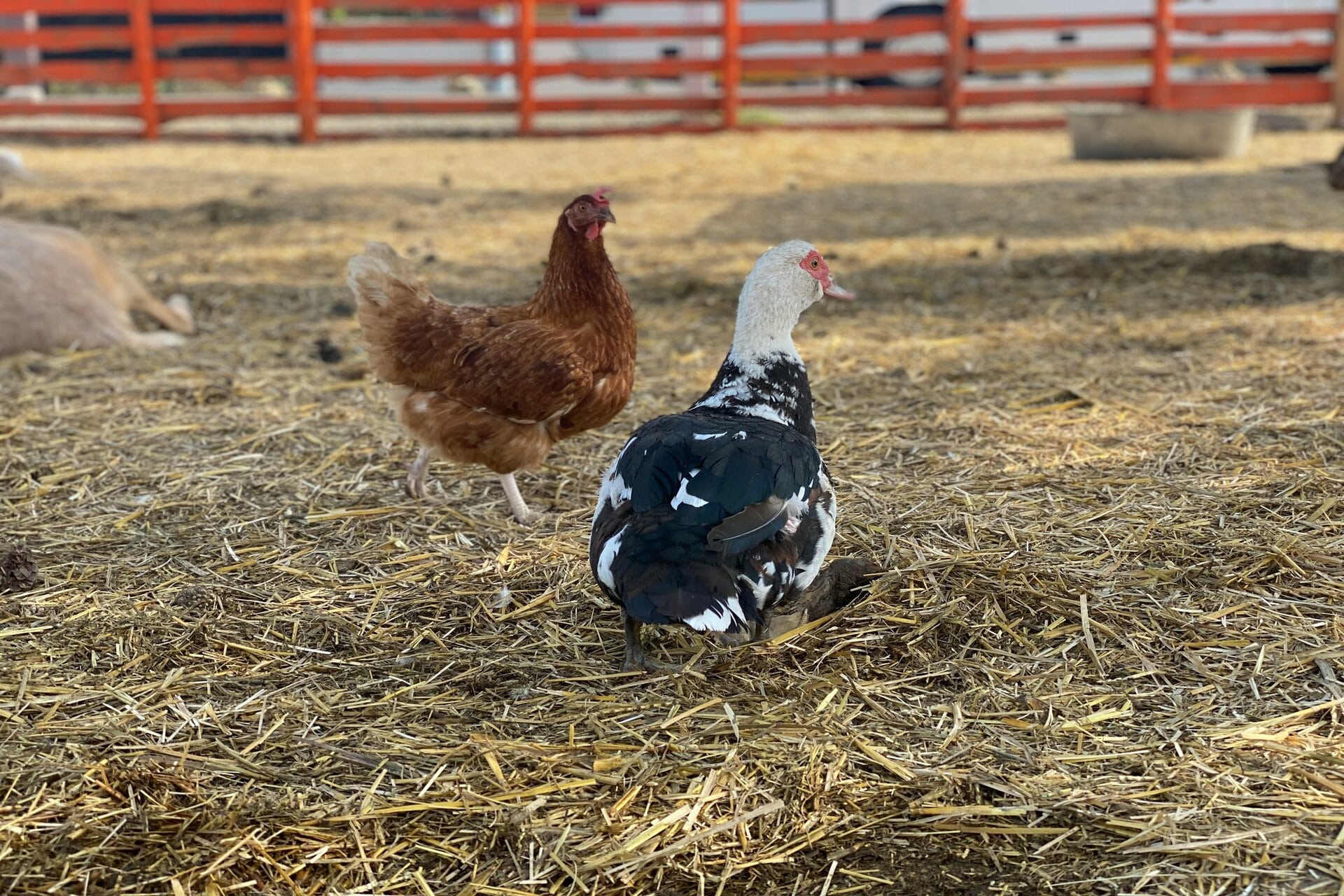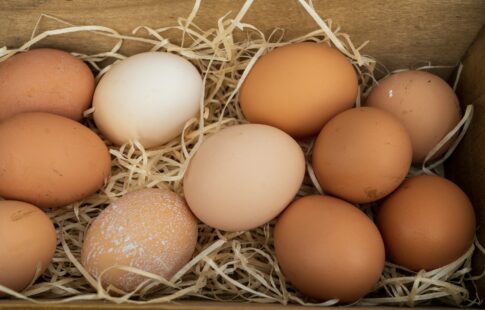
Raising Backyard Ducks Vs Chickens: How Do They Compare?
We are reader-supported. When you buy through links on our site, we may earn affiliate commission.
The backyard ducks vs chickens debate has been ongoing for some time now, mostly among people who already have one and are considering getting the other. Generally speaking, you can raise both chickens and ducks in the same living space, provided you take into account their different needs and behaviors. Here’s how they compare.
Availability
You’ve probably heard the saying, ‘Chickens are the gateway to farming.’ This is because chickens are typically easier to obtain. You can find baby chicks at farm stores, often at a cheaper price than ducklings. Additionally, you may need to find a breeder if you’re looking for a rare duck breed, whereas many local or even online hatcheries offer a wide variety of chicken breeds.
Of course, if you live in an area where homesteading is popular, duck and chicken availability might not be an issue. Just remember to purchase from reputable sources to prevent health and productivity issues down the line.
Health
In general, chickens are more prone to disease than ducks. Many illnesses, including Marek’s Disease and avian influenza virus (AIV), are extremely contagious with high fatality rates. In some cases, you may need to help young chicks and chickens gradually build up their immune systems by raising them under controlled conditions.
On the other hand, research suggests ducks possess stronger immunity against most AIV infections. They’re also less susceptible to other ailments than chickens.
Water Needs
Both animals need access to clean drinking water. A simple trough replenished with fresh water from time to time will suffice for chickens, but ducks often require a wider, more open water source like a pond or lake to bathe and play regularly.
If you have a natural water source in your yard, then you’re all set. However, if you’re creating an artificial source, prepare to clean it up daily, as it will get dirty every time ducks swim in it.
Housing and Living Areas
Ducks and chickens do well in confinement, however, they must have plenty of space to roam. Alternatively, you could raise them free-range style, letting them wander as much of your yard as possible.
If you opt to raise them in confinement, you’ll need at least four square feet of coop space per chicken. Ducks tend to be messier, so aim for a minimum of five square feet of indoor space and up to 20 square feet of outdoor space.
Predator Vulnerability
Both chickens and ducks are attractive prey to many predators, including hawks, owls, coyotes, raccoons and snakes. These predators can kill the poultry, feed on eggs and even damage your facilities.
Ducks may be more vulnerable to predator attacks than chickens because they move slower. Chickens can run, whereas ducks can only waddle along. Additionally, ducks have webbed feet, which are not great for defending against attacks. On the other hand, chickens have bony feet with claws, which give them a better chance of defending themselves.
Regardless of which ones you’re raising, it’s important to provide ample protection. Providing access to a large body of water can benefit ducks as they can simply dive below the surface when danger threatens. Other helpful tips include investing in secure coops, removing predator attractants, such as food and water, from easy-to-access areas, and deploying deterrents like motion-sensor lights and guard dogs.
Egg Production
This is one of the most significant considerations in the backyard ducks vs chickens discussion. Both are excellent egg layers, but there are some distinct differences to keep in mind.
For one, duck eggs are larger and richer in flavor, making them the preferred choice among bakers. They’re also slightly more nutritious than chicken eggs, with higher protein and omega-3 content, though this largely depends on what you’ve been feeding them.
Commercial ducks also lead in terms of egg quantity. They can lay up to 350 eggs in a year compared to commercial chickens’ 250 eggs. However, chickens tend to start laying eggs sooner than ducks, so that’s something to remember if you’re raising these animals primarily for their egg production.
Feeding Requirements
Ducks and chickens can usually eat the same thing, but ducks tend to have higher nutritional needs. In particular, they need more niacin, also known as Vitamin B3. This essential vitamin aids in converting fats, carbohydrates and proteins into usable energy for the bird. It’s also necessary for healthy brain and organ development in ducklings.
Ducks tend to eat around 20-30% more feed than similarly sized chickens. This is because they need more energy to produce bigger, nutrient-dense eggs. However, they’re also great foragers, so they can often munch on worms and insects to meet some of their nutritional requirements. Chickens are also excellent foragers, but their sharp claws and scratching actions may damage the soil.
Meat Production
You can raise both ducks and chickens for meat. Chicken meat is obviously more popular, especially among white meat consumers. There’s still no consensus on whether duck meat is red or white by culinary standards since it is darker in color when cooked. Nevertheless, duck and chicken meats are tasty and can be prepared in many ways.
Depending on the breed and the weight you want them to attain before processing, chickens can take around 6 – 12 weeks from hatching to finishing. The most common breeds for meat production are Cornish Cross broilers, Jersey Giant and Orpington — all of which can grow upwards of 10 lbs.
Ducks tend to reach processing age in about eight weeks, though some breeds can mature much quicker. If you’re raising ducks for meat, Jumbo Pekins, Muscovy and Saxony are the most popular options due to their heavier weights.
Cost
Generally, raising chickens is less expensive than raising ducks. Chickens don’t eat as much as ducks, so the cost of feeding them is considerably lower, plus they have lower nutritional requirements. Moreover, you don’t need to provide a pond or lake for chickens to play in all day long.
However, because chickens are more susceptible to disease than ducks, they can also cost more to treat. Additionally, duck eggs and meat typically sell for higher, so there’s a potential for recouping your initial costs quicker.
Backyard Ducks Vs Chickens
Raising ducks and chickens in your backyard can be a rewarding experience. They do tolerate each other very well and can make for excellent pets. At the end of the day, it comes down to your goals, homestead setup and time commitment.
Share on
Like what you read? Join other Environment.co readers!
Get the latest updates on our planet by subscribing to the Environment.co newsletter!
About the author
Rachel Lark
Rachel serves as the Assistant Editor of Environment.co. A true foodie and activist at heart, she loves covering topics ranging from veganism to off grid living.





